
Comprehensive Guide to Private Office Coworking Spaces
Table of Contents
Coworking spaces have transformed the modern work environment, combining the best of community collaboration with the privacy and productivity of dedicated office setups. This guide dives deep into trends, benefits, and practical advice for choosing and designing your ideal private office coworking space.
1. Trends in Private Office Coworking Spaces
- Hybrid Work Adaptation
Many professionals now seek hybrid work setups that blend remote work with a structured office environment. This shift has made coworking spaces more adaptable and desirable. Hybrid models allow workers to split their time between home and office, catering to those who need both flexibility and access to professional-grade facilities.
- Enhanced Technology
Coworking spaces now feature advanced tools and technologies designed to enhance productivity and convenience. These include soundproofing for distraction-free calls, high-speed internet for seamless workflows, and smart technologies like app-controlled access and booking systems. These advancements are particularly beneficial for tech-savvy professionals who require robust and reliable setups.
- Eco-Friendly Designs
Energy-efficient lighting, recycled materials, and sustainable practices are becoming staples in coworking space design. Spaces are incorporating greenery, natural materials, and eco-conscious policies to reduce their environmental footprint while creating a calming, attractive work environment.
- Personalized Solutions
Coworking spaces now offer a variety of setups tailored to individual and team needs. From fully private offices with lockable doors to semi-private areas with shared amenities, these options provide the flexibility to choose based on budget, team size, and work requirements. Customization options, like selecting specific furniture or layouts, further enhance the user experience.
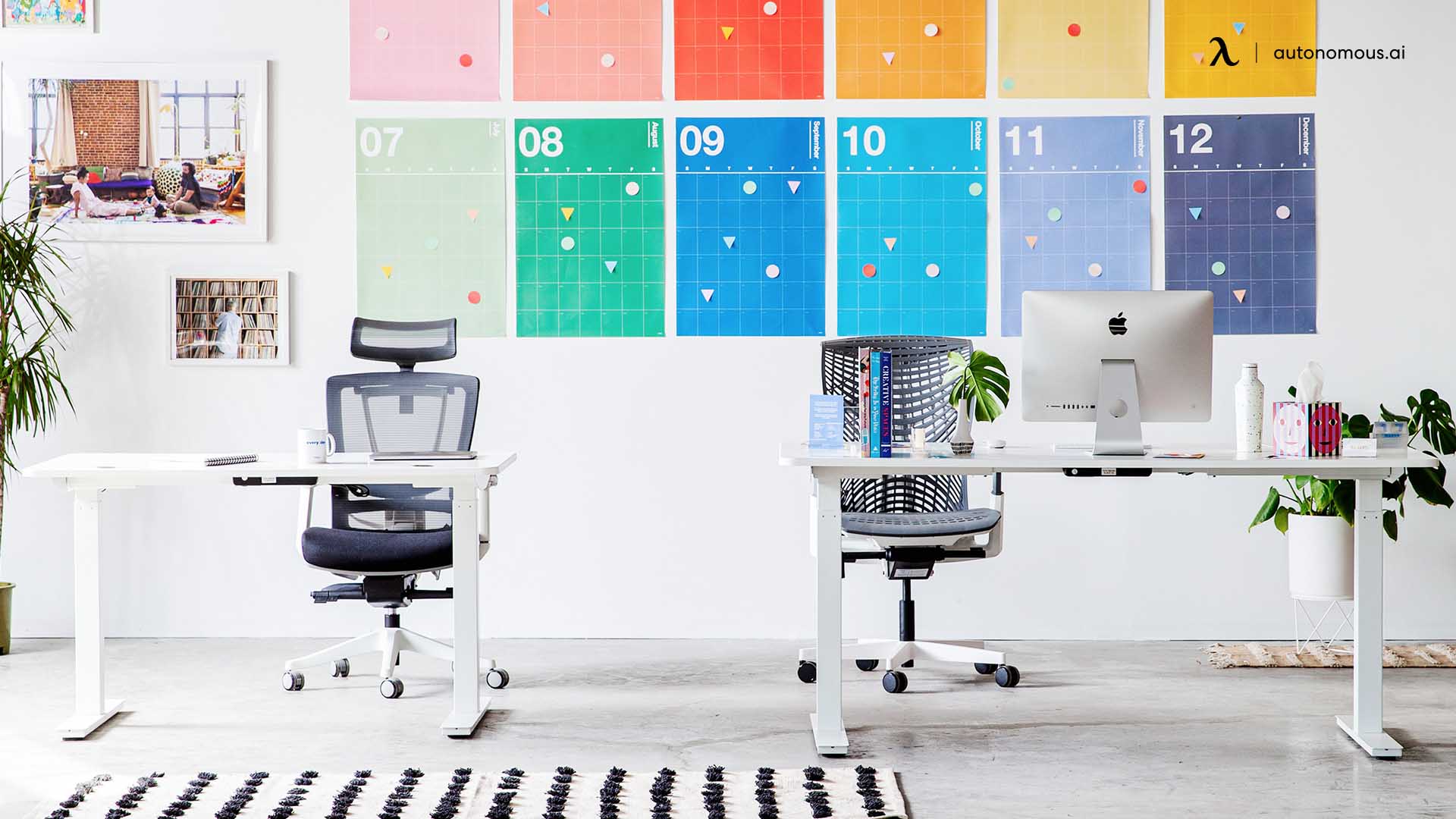
2. Benefits of Private Office Coworking Spaces
- Increased Privacy
Private offices provide the confidentiality needed for client meetings, brainstorming sessions, and deep, focused work. They are ideal for professionals handling sensitive data or requiring distraction-free environments to stay productive.
- Cost Savings
Coworking spaces offer premium amenities such as conference rooms, reception services, and office equipment without the steep costs of traditional office leases. By sharing expenses, small businesses and freelancers can access high-quality resources at an affordable price.
- Networking Opportunities
Private offices within coworking spaces enable professionals to network effortlessly. Shared communal areas like lounges and kitchens foster organic interactions, allowing individuals to build valuable connections while still having a dedicated space to retreat to for focused work.
- Flexible Lease Options
Short-term and adjustable lease agreements make these spaces perfect for growing teams, startups, or solo professionals. This flexibility allows businesses to scale operations without the constraints of long-term commitments, making it easier to adapt to changing needs.
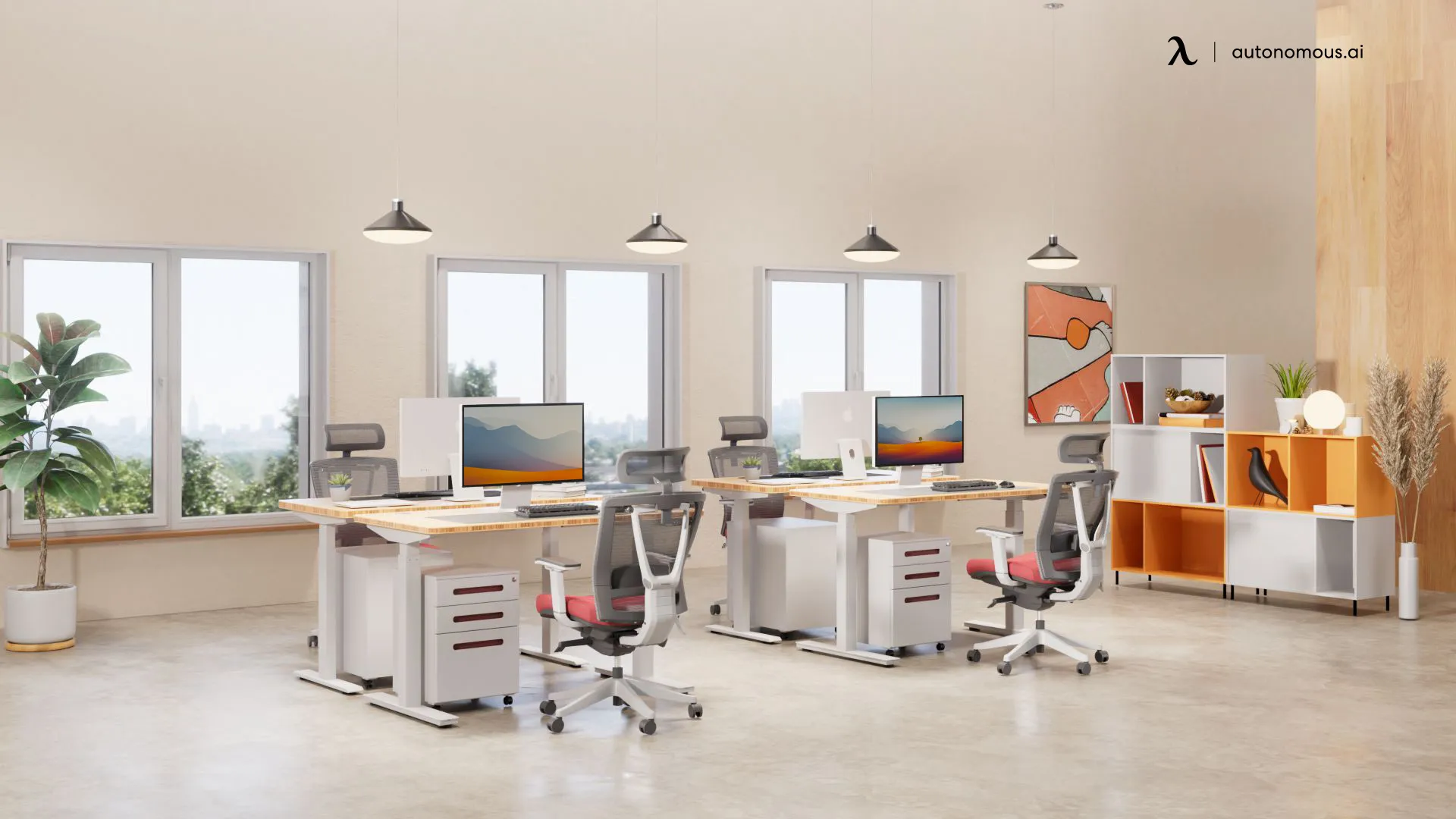
3. How to Choose the Right Private Office Coworking Space
- Location
A central and convenient location reduces commuting time and enhances professional accessibility. Consider proximity to key clients, public transportation, and amenities like restaurants and shops to maximize convenience for you and your team.
- Privacy and Security
Features like soundproof walls, secure entry systems, and lockable storage ensure peace of mind. For businesses handling sensitive data or intellectual property, these elements are non-negotiable.
- Amenities
Evaluate offerings like high-speed Wi-Fi, dedicated meeting rooms, on-site parking, and access to shared facilities like printing and catering services. Amenities play a significant role in enhancing the overall work experience.
- Budget and Lease Terms
Review contracts thoroughly to avoid hidden fees and ensure the lease terms align with your financial and operational needs. Flexible agreements, transparent pricing, and trial periods can make a huge difference when selecting the right space.
- What to Avoid
Hidden Fees: Carefully review contracts to avoid unexpected costs, such as charges for parking, after-hours access, or additional amenities. Transparency is key when evaluating your options.
Inconvenient Location: An office that is difficult to access can lead to reduced productivity and frustration for you and your clients. Ensure the location is practical for daily use.
Skipping a Trial: Testing a space before committing is crucial. A trial period allows you to assess whether the office meets your requirements for comfort, functionality, and accessibility.
Ignoring Reviews: User reviews provide valuable insights into the quality of the space and management. Take the time to research feedback from current and past tenants to make an informed decision.
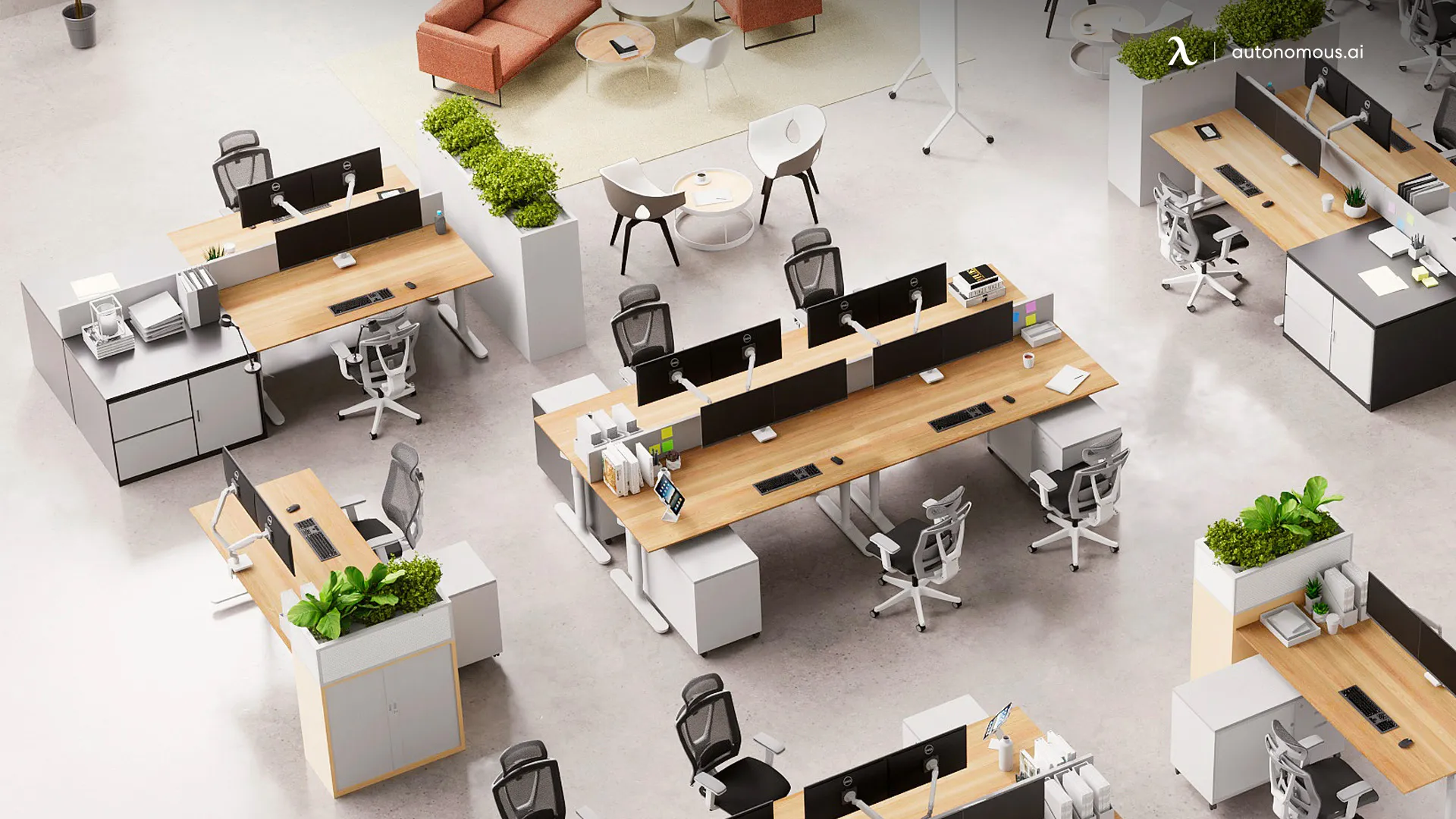
4. How to Build a Private Office Coworking Space for Rent
Building a private office coworking space for rent requires thoughtful planning and design to attract and retain clients. Here’s a detailed guide to creating a functional, appealing, and profitable coworking space:
4.1. Space Planning and Layout
Effective space planning is crucial for creating a functional and attractive coworking environment. Start by zoning your space. Divide it into private offices, meeting rooms, communal areas, and shared amenities. This approach ensures a balance between privacy and community engagement, fostering a collaborative yet focused workspace. For inspiration, explore these office layout ideas for productive workspaces.
Flexibility is key. Incorporate modular designs that allow offices to be reconfigured to accommodate different team sizes or functions. Modular setups work particularly well for smaller spaces; you can refer to these small office layout ideas for creative solutions.
When planning traffic flow, focus on minimizing noise and disruptions. Clear pathways and designated quiet zones ensure a smoother experience for all users. If you'd like to integrate office Feng Shui principles 2025 into your office, consider layouts such as a Feng Shui office layout with a window or designs featuring an L-shaped desk layout.
For executive spaces, consider these small executive office design ideas for creating a professional and functional environment. Small business owners can also benefit from effective office design ideas tailored to their unique needs.
4.2. Furniture and Equipment
Ergonomic furniture is a cornerstone of a comfortable and productive office. Investing in high-quality, adjustable desks and chairs ensures that the workspace caters to diverse work preferences. For guidance, explore these top office furniture brands in the US that offer reliable and ergonomic options.
Office equipment like printers, scanners, and high-speed internet is essential for maintaining productivity. These tools ensure seamless workflows and are indispensable for any professional setting. To save costs, consider buying office supplies in bulk, especially if you are equipping a larger office.
Aesthetic appeal also plays a significant role. Modern and professional decor can create a welcoming and inspiring environment. Adding personal touches or aligning with the latest design trends enhances the overall atmosphere. If you’re sourcing items in bulk, check out where to buy office furniture in bulk or specific locations like office supplies in bulk in California for regional options.
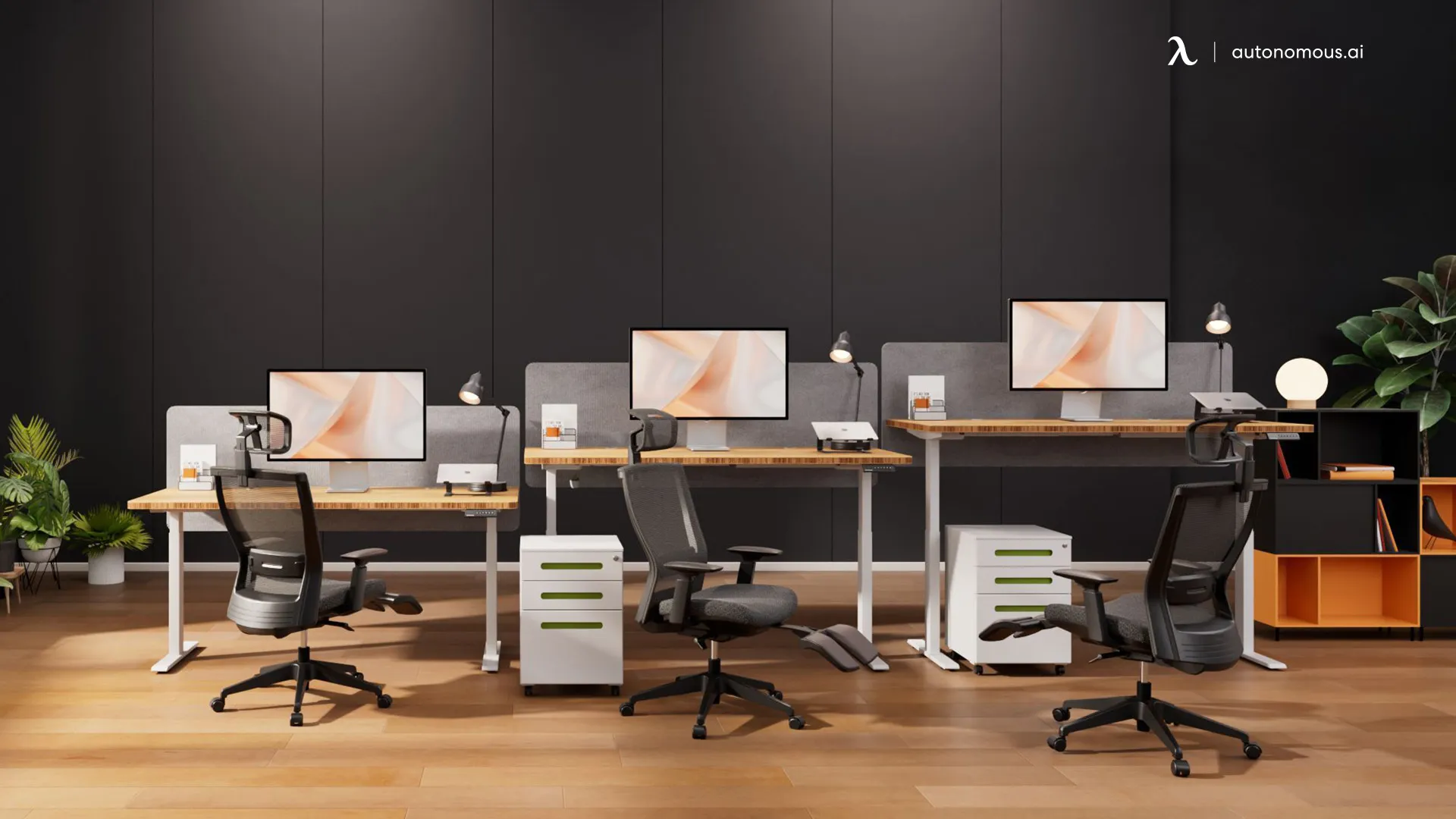
4.3. Technology, Amenities, and Sustainability
Incorporating technology, thoughtful amenities, and sustainable practices creates a well-rounded coworking space that meets diverse client needs. App-based access control systems enhance convenience and security, while intuitive booking platforms streamline the reservation of meeting rooms and additional services. Reliable, high-speed internet and ample charging points ensure seamless connectivity for all users.
Amenities such as kitchens or coffee bars foster casual networking and community engagement. Wellness-focused features, including standing desks, ergonomic chairs, and access to natural light, support health and productivity. Professional services, like mail handling and visitor management, add a layer of sophistication that appeals to businesses.
Sustainability is also a key consideration in coworking spaces. Implementing energy-efficient lighting not only reduces costs but also enhances the workspace. Choosing the right light color temperature, such as daylight or soft white lighting, can significantly impact productivity and comfort. For further insight, explore the best light color temperature for business.
Promoting waste recycling and using sustainable materials align with the growing demand for environmentally friendly practices. Incorporating these elements into a sustainable office design demonstrates a strong commitment to eco-conscious values. Together, these measures create a workspace that is functional, inviting, and future-ready.
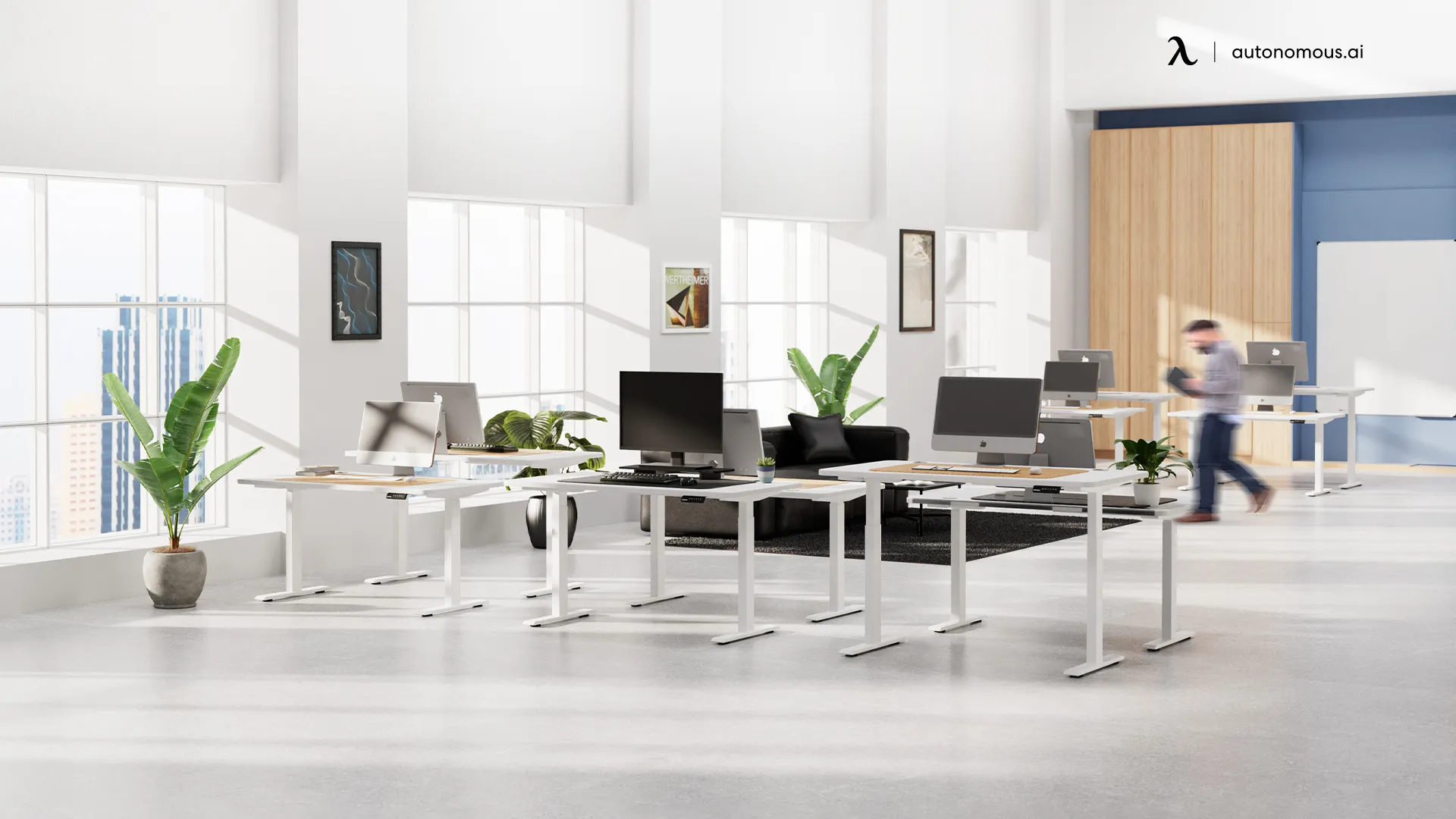
5. Optimizing Private Home Offices for Remote Workers
Remote workers often face unique challenges when designing their home workspaces. A private home office offers an ideal solution for improving productivity and creating a professional environment within the home. Start by selecting a dedicated area that separates work from personal life. A quiet, low-traffic space, away from distractions, helps establish clear boundaries and fosters focus.
Arranging the layout of the office is equally crucial. If your home office doubles as a guest room, explore these small home office guest room ideas for practical layouts. Incorporating the principles of small home office interior design can further enhance both functionality and aesthetics. For additional inspiration, these home office guest room design ideas offer creative solutions to make the most of your space.
To add balance and harmony to your setup, consider implementing a Feng Shui home office layout to create a space that fosters focus and positive energy.
Lighting plays a pivotal role in home office optimization. Natural light improves mood and productivity, so positioning the desk near a window is ideal. For evening work or rooms with less natural light, adjustable task lighting is essential to reduce eye strain. Complement the lighting with decor that inspires and personalizes the space, such as motivational artwork, greenery, or family mementos. These additions can transform the office into an inviting, creative space.
Technology is another cornerstone of a productive home office. High-speed internet ensures seamless virtual meetings and collaboration. Noise-canceling headphones or soundproofing can help maintain focus in shared living spaces. Incorporating smart tools, such as virtual assistants or dual monitors, enhances workflow and efficiency.
Finally, health and wellness should not be overlooked. Ergonomic furniture, such as adjustable chairs and desks, supports posture and reduces strain during long work hours. Movement breaks can be encouraged with the inclusion of standing desks or balance boards. Air quality can be improved with purifiers or by opening windows, contributing to overall comfort. Keeping water and healthy snacks within reach ensures sustained energy throughout the day. These thoughtful optimizations create a space that is both functional and inspiring, perfectly tailored for remote work success.
6. FAQs
What is the difference between a private office coworking space and a traditional office?
Private office coworking spaces combine the privacy of traditional offices with the flexibility and community of coworking environments. They offer short-term leases, shared amenities, and opportunities for networking, which are not typically available in traditional office setups.
Can I customize my private office in a coworking space?
While customization options may vary, many coworking spaces allow users to personalize their private offices to some extent, such as adding decor, arranging furniture, or using branding elements. For more extensive modifications, it’s best to check with the space provider.
Are coworking spaces suitable for small teams or startups?
Yes, coworking spaces are ideal for small teams and startups due to their cost-effective pricing, flexible lease terms, and access to shared resources like meeting rooms and office equipment.
How do coworking spaces ensure privacy for professionals?
Private offices within coworking spaces are typically soundproofed and come with secure access. Additionally, coworking spaces often have policies and infrastructure to maintain confidentiality and prevent interruptions.
Can I use a private office coworking space as my business address?
Many coworking spaces offer virtual office services, allowing you to use their address for mail handling and official business purposes. Some may include this as part of their private office packages.
How do coworking spaces manage security?
Coworking spaces implement various security measures, such as app-based access control, surveillance cameras, and secure lockers. Private offices often have lockable doors for additional safety.
Are coworking spaces open 24/7?
Some coworking spaces provide 24/7 access, especially for private office users, to accommodate different work schedules. However, policies vary, so it’s best to confirm with the specific space.
What additional perks do coworking spaces offer beyond offices?
Coworking spaces often provide a range of perks, such as networking events, wellness programs, fitness facilities, coffee bars, and even childcare services. These extras enhance the overall work experience.
How do I decide if a coworking space is right for me?
Consider factors like location, budget, required amenities, and the type of work you do. A trial period, if available, can help you assess whether the environment meets your needs.
What are the environmental benefits of coworking spaces?
Coworking spaces promote sustainability by sharing resources, reducing energy consumption, and incorporating eco-friendly practices like waste recycling and energy-efficient designs.
Conclusion
Private office coworking spaces provide a perfect blend of privacy, flexibility, and community. Whether you're an entrepreneur, freelancer, or part of a small team, exploring coworking spaces for individuals or shared private office options can elevate your work experience. Use these insights to find or build your ideal workspace and thrive in today’s dynamic professional landscape.
Stay connected with us!
Subscribe to our weekly updates to stay in the loop about our latest innovations and community news!
Interested in a Link Placement?
Spread the word
.svg)


.jpg)

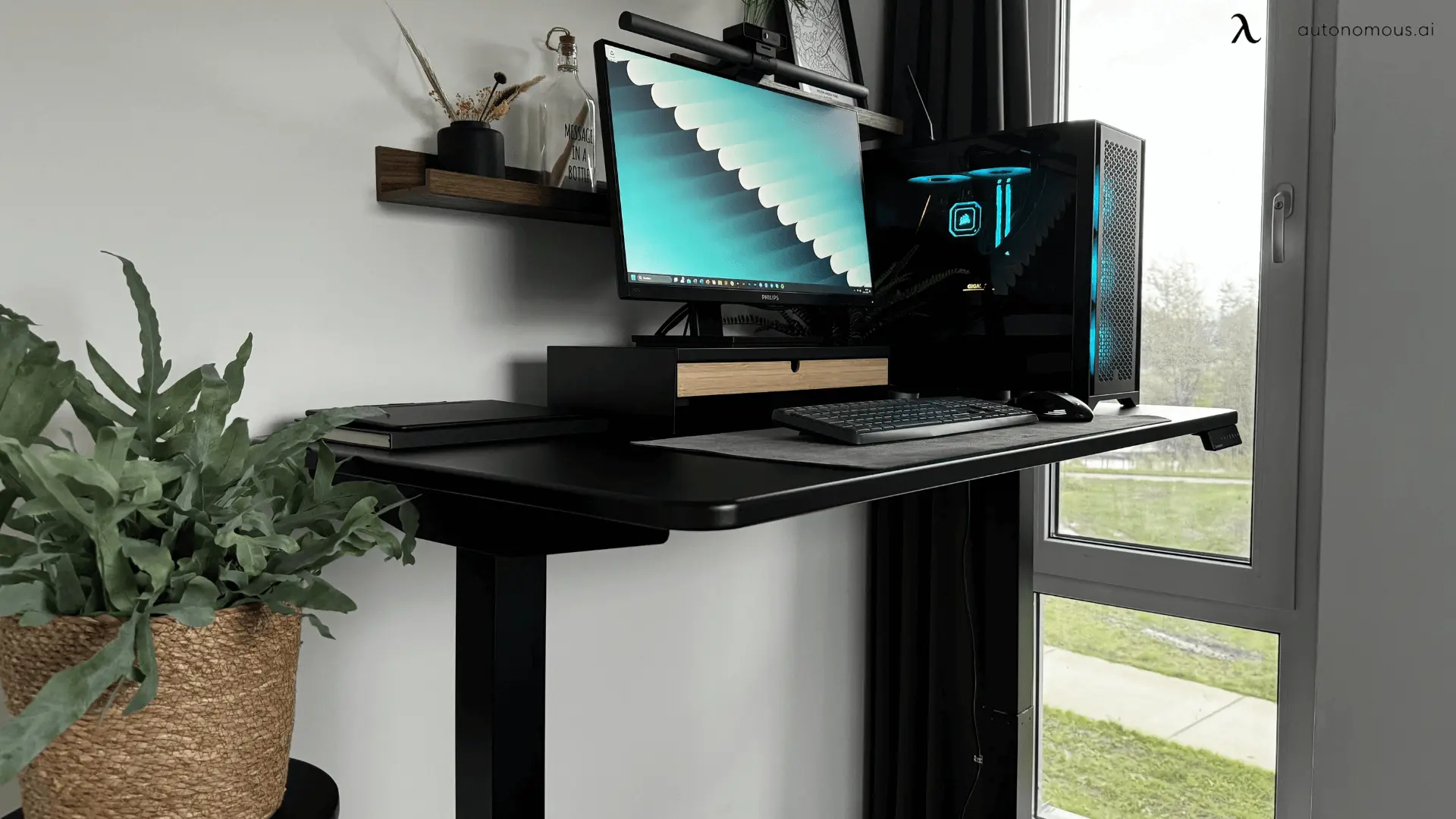
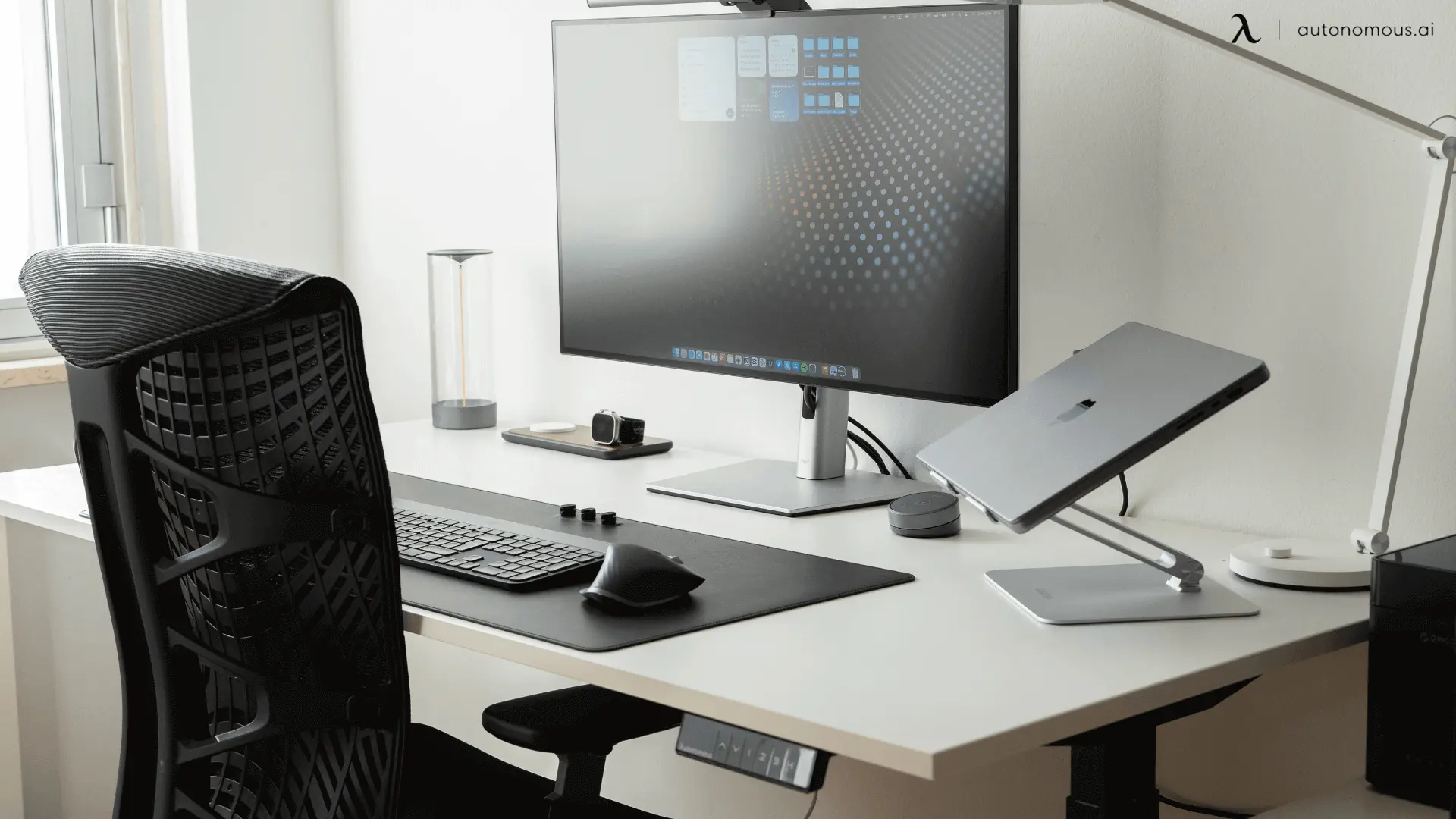
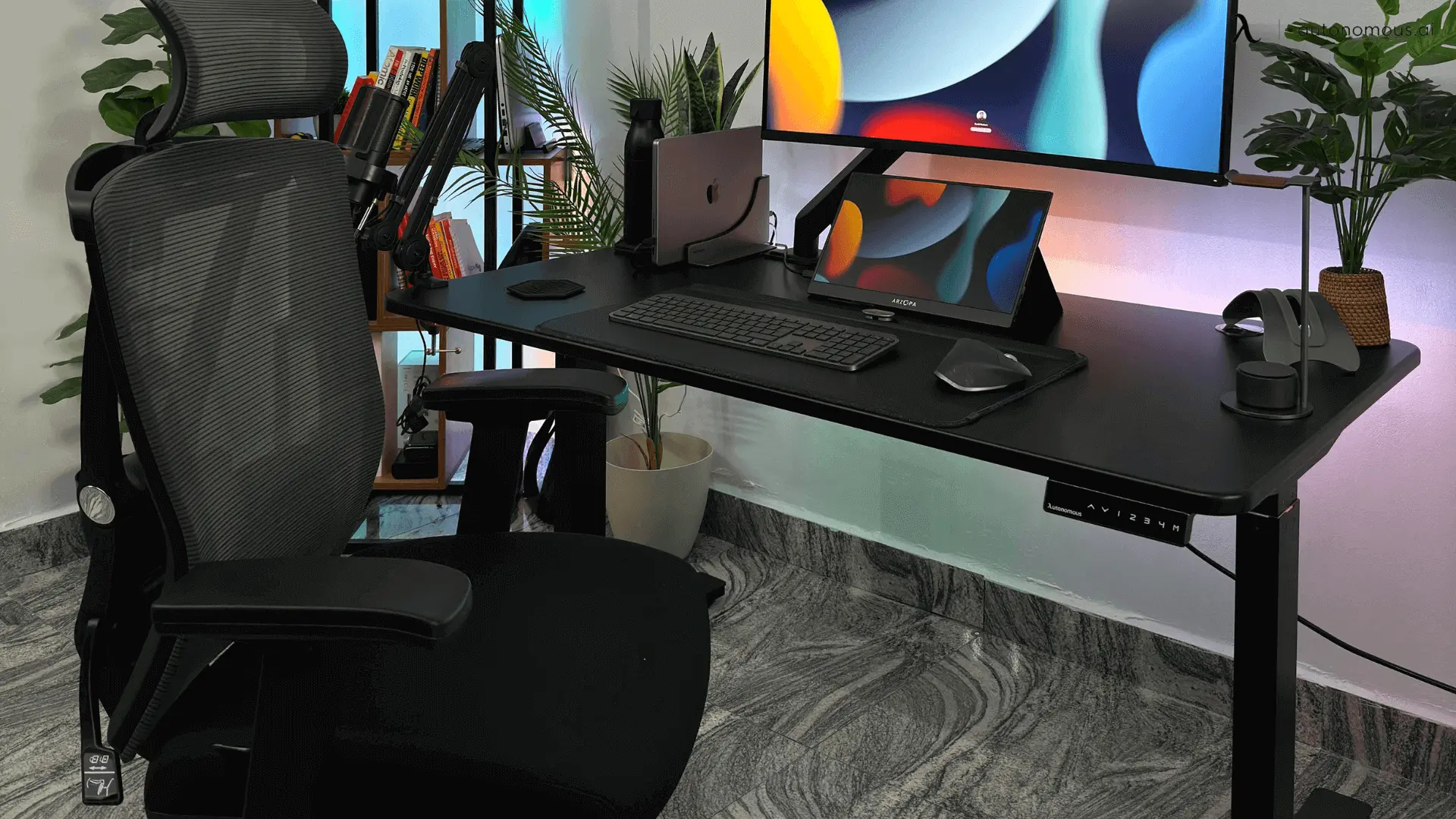
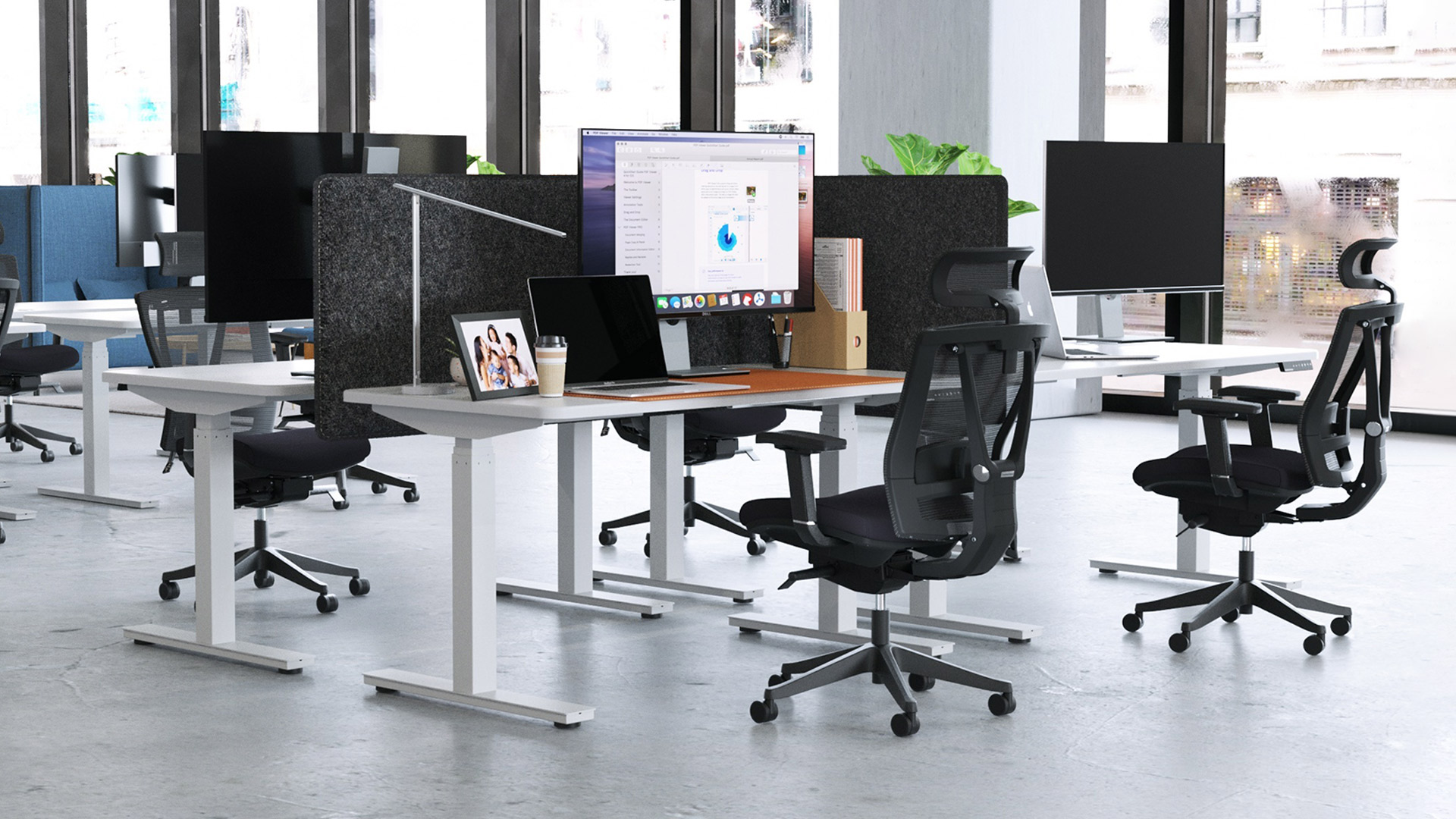
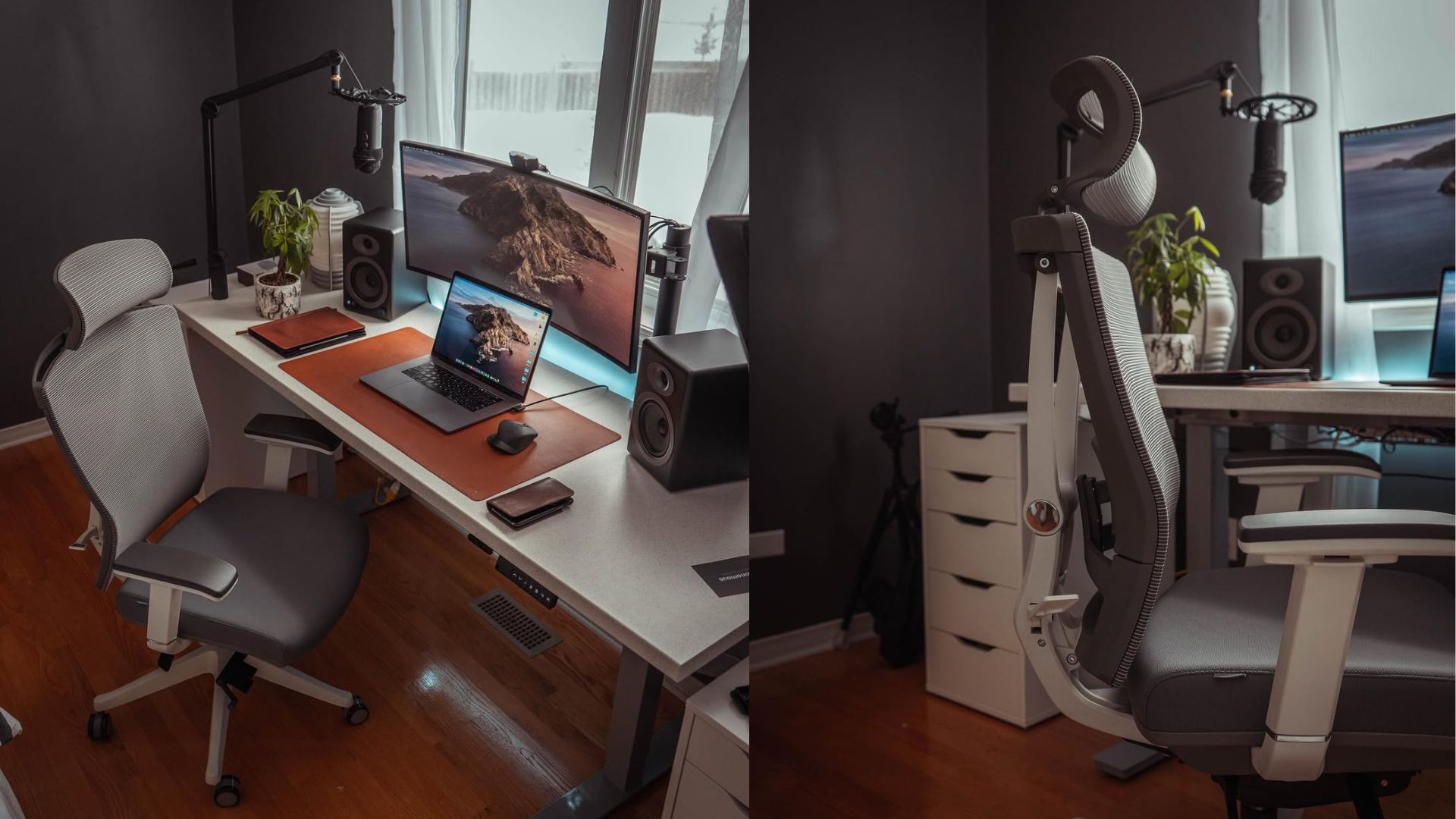
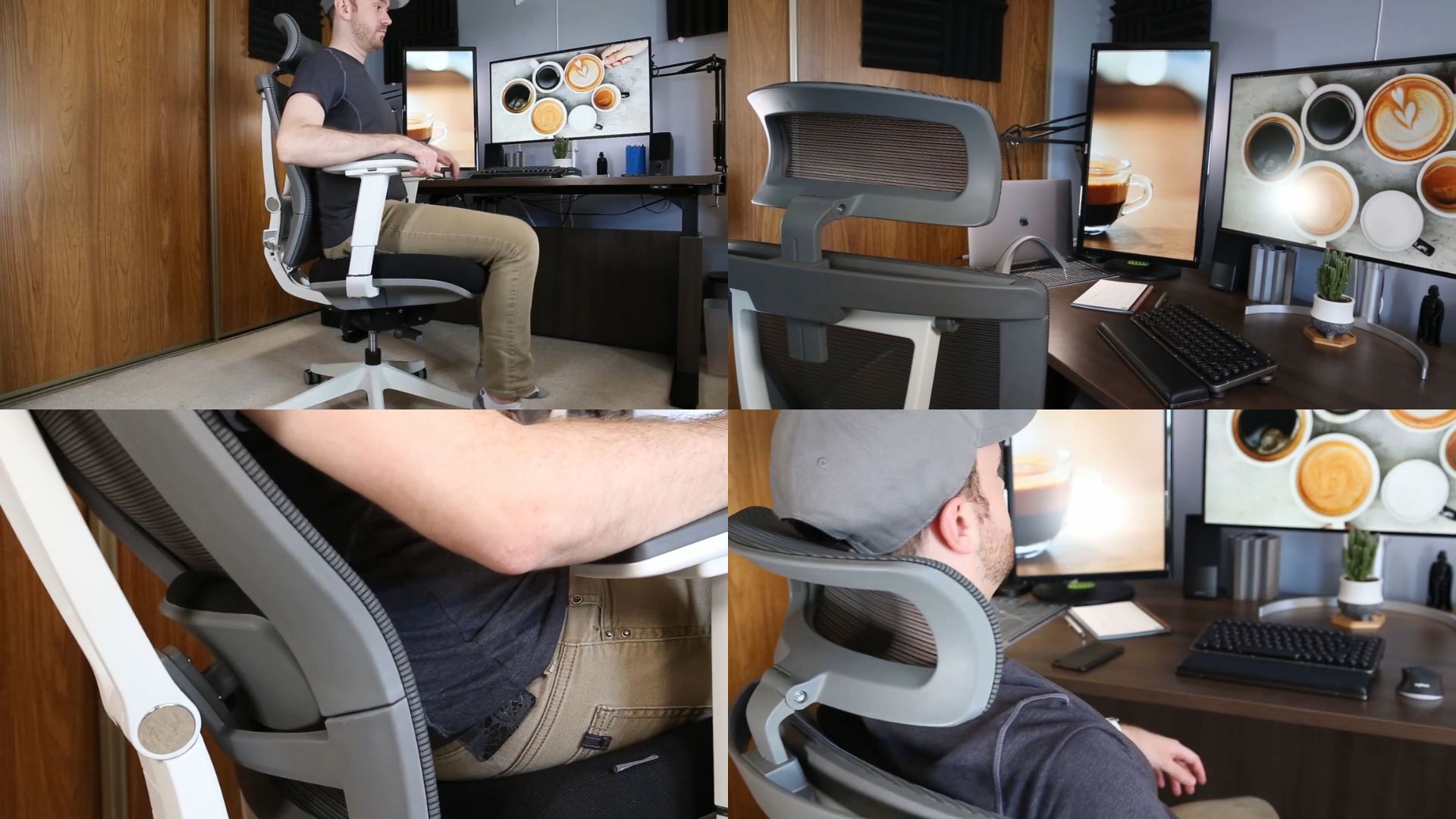
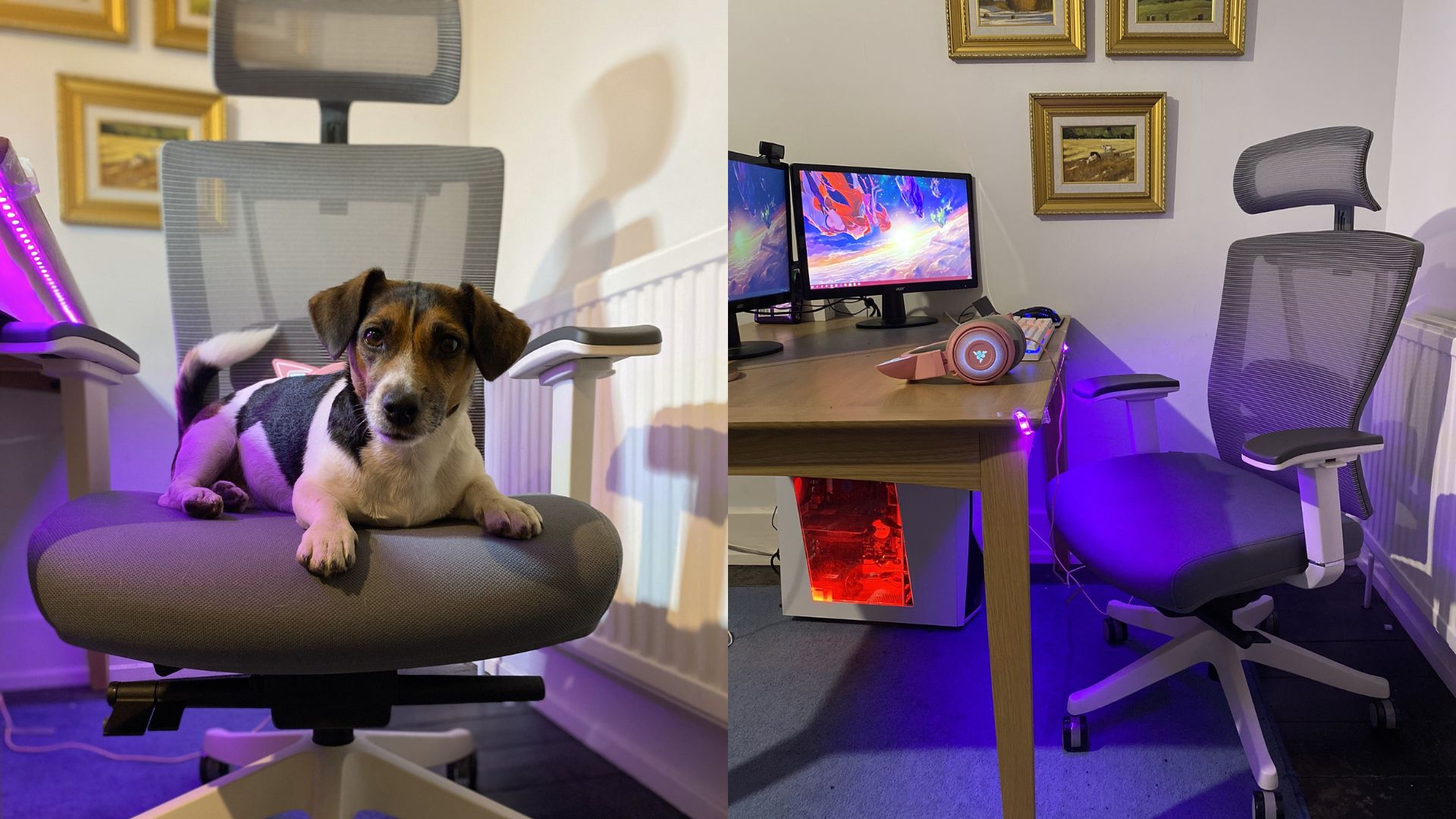


/https://storage.googleapis.com/s3-autonomous-upgrade-3/production/ecm/230914/bulk-order-sep-2023-720x1200-CTA-min.jpg)
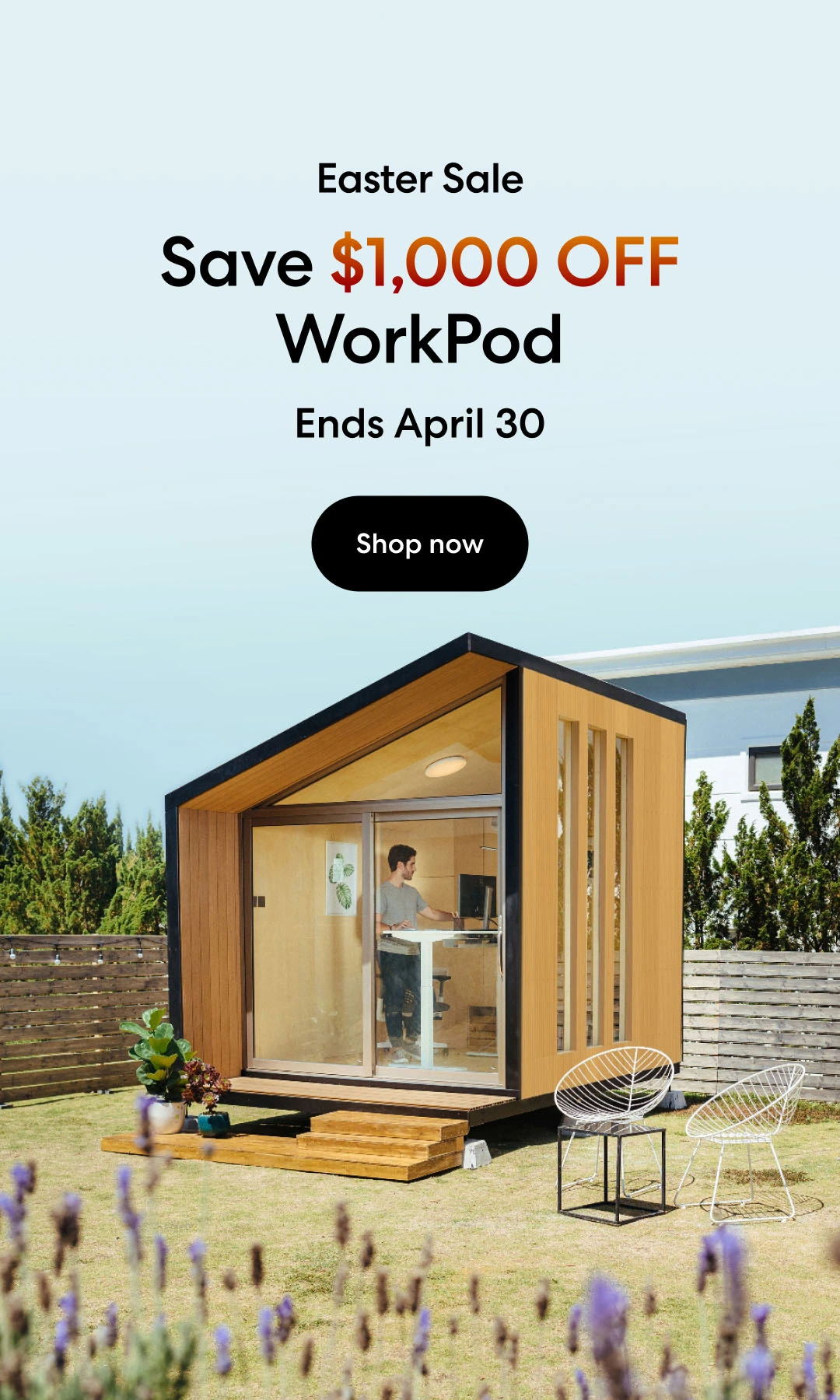
/https://storage.googleapis.com/s3-autonomous-upgrade-3/production/ecm/230920/Untitleddesign.jpg)